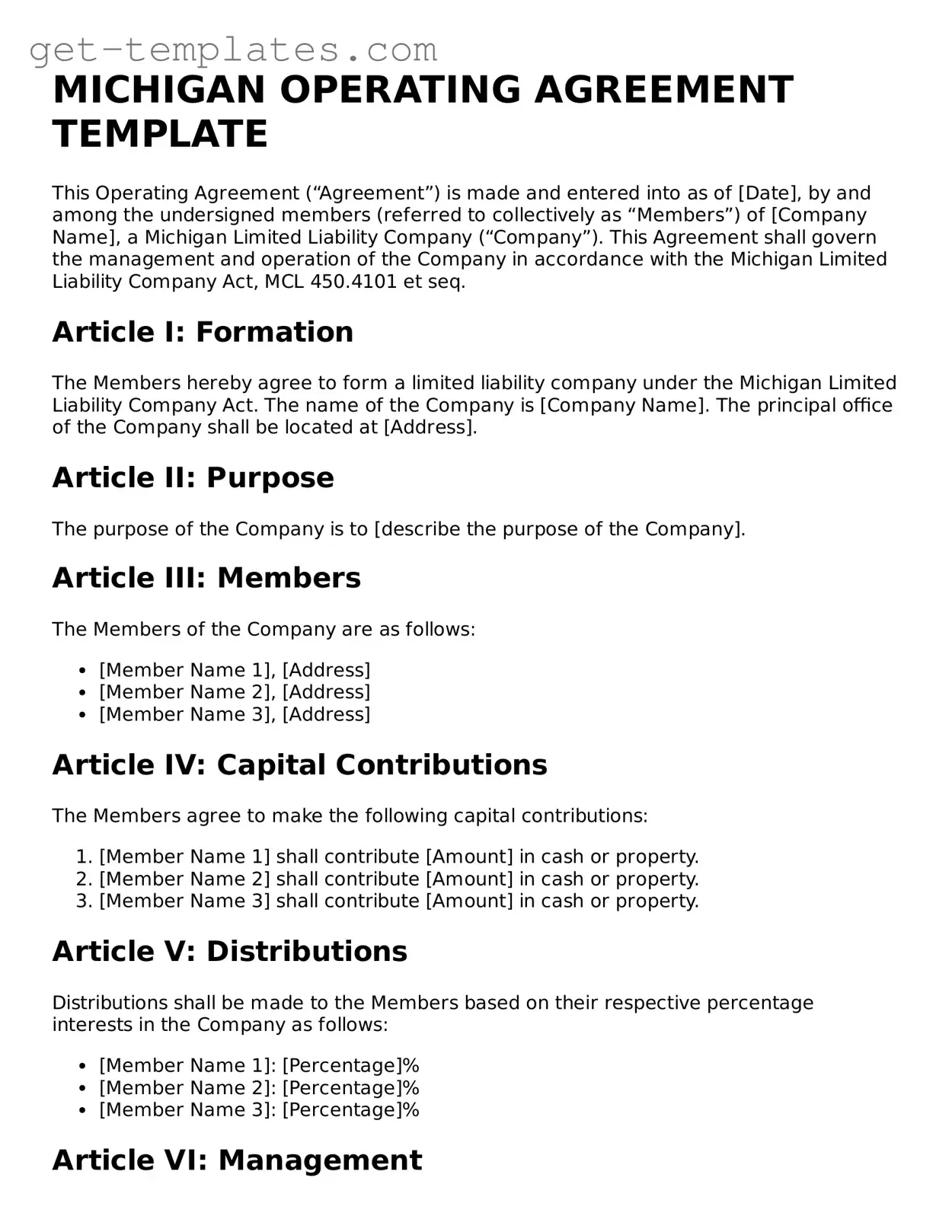Attorney-Approved Operating Agreement Document for Michigan
The Michigan Operating Agreement form is a crucial document that outlines the management structure and operational procedures for a limited liability company (LLC) in Michigan. This agreement serves as a roadmap for how the business will be run, detailing the rights and responsibilities of its members. Understanding this form is essential for anyone looking to establish a solid foundation for their LLC in the state.
Get Document Online

Attorney-Approved Operating Agreement Document for Michigan
Get Document Online
You’re halfway through — finish the form
Finish Operating Agreement online — edit, save, download made easy.
Get Document Online
or
⇓ PDF Form
